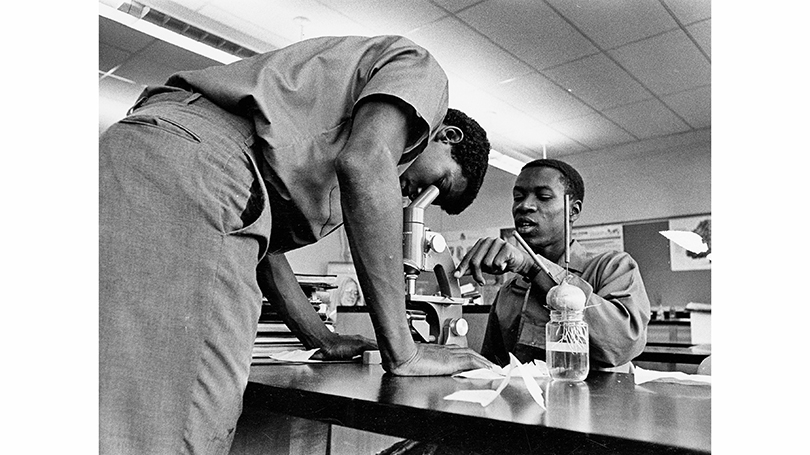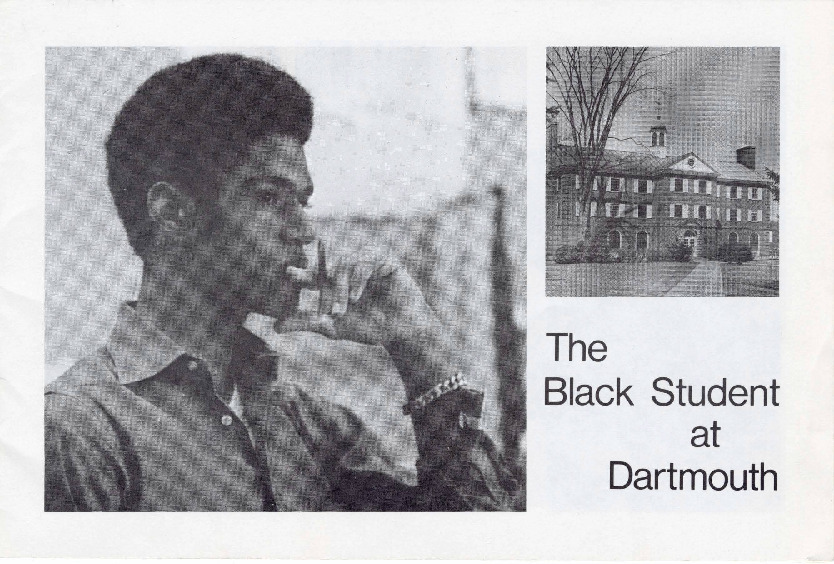New To The Woods (Vachon Raye '24, Fall '21)
The 1960s was a momentous time in America. There was a true sense of transition for African Americans as the Civil Rights movement affected not only Americans but people across the globe. Dartmouth was also a place changing with the times. Although the school was predominantly White, Dartmouth worked with the Black student population and, when it did not, the students worked with each other until the school did. Being alone in the woods helped build a strong sense of community for African Americans and they worked through hardships and found comfort with each other. Until the year 1967, Dartmouth did not matriculate more than two or three Blacks a year and it was not until the fall semester of 1971 that women were allowed to take courses at Dartmouth. Not only was it a change for the school but also for students coming into Dartmouth.
After 1967 there was an influx of Blacks because of programs that guided students to schools like Dartmouth. A Better Chance, the ABC program was one of the many programs that helped minority students gain admission to Dartmouth. This was also still a time of segregation and Jim Crow, and although this was not alive at Dartmouth, the sense of Civil Rights was definitely present. During this time, Black people had to work twice if not three times as hard to achieve success. This translated to not only life but to the classroom and respective athletic fields. It took a lot of mental toughness for Black male students to be consistently surrounded by White males.
You may wonder what was attracting Black students to Dartmouth during the time. Not only were there programs like A Better Chance, but Black students at Dartmouth also began to take matters into their own hands by recruiting Dartmouth to Black high schoolers around the country. During this time, Dartmouth's Black student body created the Black Student Application Encouragement Committee to help promote Dartmouth to Black students from their hometowns and surrounding areas. With Dartmouth being an Ivy League institution and the opportunity to possibly leave with an Ivy League degree, there was not a student in America who could pass up on this opportunity, especially African American students. Most of those who chose to take their educational prowess to Dartmouth and earn their degrees left it without any doubts or regrets.


